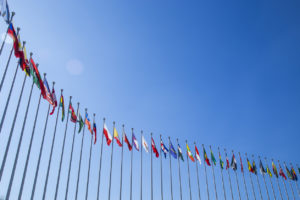In October 2019, mass protests erupted across Lebanon. Public outcry focused on the policies and practices of Banque du Liban (Lebanon’s Central Bank); Association of Banks in Lebanon (ABL), a membership-based consortium of Lebanese commercial banks; and local Lebanese commercial banks. For years, these entities had worked together to artificially buoy the country’s now-crumbling economy. In response, Lebanese commercial banks swiftly imposed a variety of restrictions on their customers’ ability to access funds, including restrictions on withdrawal amounts, transfer of funds, and foreign currency transactions. Seemingly implemented by necessity, the banks’ efforts to protect themselves and the national economy did very little to ameliorate banking customers’ pressing financial concerns. This led to further protests in recent months, in defiance of recent public health-driven stay-at-home orders.
While these are crucially important local developments, they also impact foreign investors who are private banking customers. Ironically, for years, these same foreign customers provided Lebanon’s economy with much-needed foreign currency, thereby facilitating Lebanon’s economic stability. They were attracted by favorable interest rates for the U.S. dollar and other foreign currency accounts (as high as 15% per year) and they viewed their bank deposits with Lebanese commercial banks as long-term local investments.
Several of these foreign banking customers have already filed lawsuits in U.S. courts against local Lebanese commercial banks and/or Banque du Liban. The most recent case was filed in New York in June, claiming in excess of $150 million in damages. While these lawsuits primarily focus on the obligations of and breaches by local commercial banks, owing to their commercial and fiduciary relationship with their foreign banking customers, there is a broader issue at play.
Banque du Liban’s website explains that, as the Lebanese state’s central bank, it is a “legal public entity” that “enjoy[s] financial and administrative autonomy” and is “not subject to the administrative and management rules and controls applicable to the public sector.” Yet, all of its capital is appropriated by the state. The legal status of Banque du Liban, the source of its internal decision-making, and control over its capital are crucial considerations when analyzing the possible claims of foreign banking customers in light of the current local financial crisis.
Banque du Liban was involved in encouraging foreign investment vis-à-vis banking deposits by foreigners. Further, it reportedly had a central role in designing and implementing government measures that diminished the value of those investments. The banking restrictions started off as merely de facto capital controls, and are now on the verge of becoming actual capital controls based on news reports of currently pending legislation. Were this legislation to be implemented, it would create a level of state responsibility for interference with the investors’ legitimate expectations. Even if true capital controls do not come to fruition, there may be scope for investors to claim that, even without overt capital controls, the Lebanese state is responsible for its failure to prevent banking restrictions through adequate oversight of the local commercial banks and Banque du Liban.
These circumstances open avenues for foreigners to assert claims directly against Lebanon for violation of a bilateral or multilateral investment treaty. Lebanon is party to fifty such bilateral or multilateral investment treaties. Each treaty provides certain protections and international arbitration proceedings can be commenced by qualified “investors” with qualified “investments” against Lebanon for damages caused by improper state action.
The first hurdle is determining whether the potential claimant is a qualified “investor.” Since many potential claimants may be from the Lebanese diaspora, it is important to consider under the specific treaty whether dual nationals (where one nationality is Lebanese) would qualify to assert claims against Lebanon.
The next hurdle—determining whether a qualified “investment” exists—can be more straightforward because the bank deposits themselves may be enough. Banque du Liban (and by implication, Lebanon) has been inextricably involved in local commercial banks’ decisions to offer high interest rates on foreign currency deposits. Many foreigners were attracted by these favorable terms and, over the years, benefited from steady returns. This could serve as a qualified investment under the Salini test, the most widely accepted legal test in investment arbitration jurisprudence: It involves a contribution of assets, over time, involving some element of risk, with the investment actively contributing to the state’s economy.
Potential claimants must frame their claims to match the protections offered by the applicable treaty. Protections available under Lebanon’s various treaties include “free transfer” provisions, “fair and equitable treatment” or “minimum standard of treatment” provisions, and “full protection and security” provisions. For example, the “free transfer” provisions found in each of Lebanon’s investment treaties guarantees investors’ rights to freely transfer funds relating to their investment and returns on that investment in and out of Lebanon. Such funds may include the initial capital and the returns (i.e., interest), as well as the proceeds from the sale of an investment (i.e., the withdrawal of deposits). Typically, such provisions will also guarantee access to the foreign exchange market which allows the conversion of Lebanese Pounds into a freely convertible currency such as U.S. dollars. Similarly, a successful claim for violation of a “fair and equitable treatment” (FET) provision may allow an investor not only to recover the banking deposits that they cannot access, but also to be awarded damages for consequential harm. Such consequential damages may include harms for lost business opportunities or liabilities to third parties.
While these strategies may not lead to direct recovery from the commercial banks holding the foreign investors’ trapped deposits, they do create an opportunity for foreign investors to recover compensation for state action, which in this case, caused enormous financial harm to foreign deposits-investors who provided Lebanon with U.S. Dollars on which the Lebanese state and economy largely operate today.



